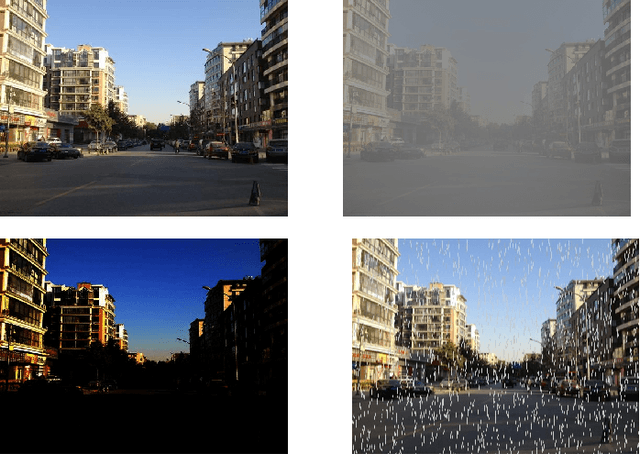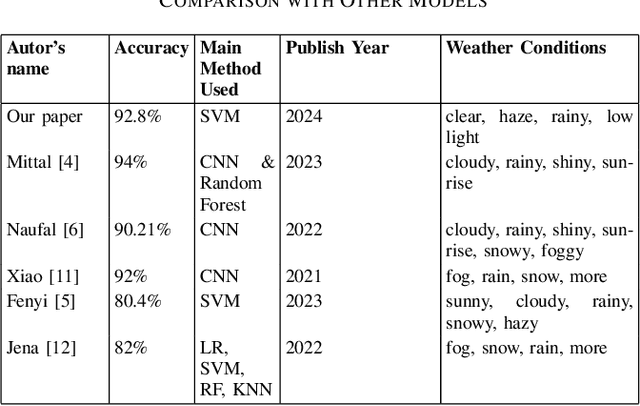Eden Ship
Real-Time Weather Image Classification with SVM
Sep 01, 2024



Abstract:Accurate classification of weather conditions in images is essential for enhancing the performance of object detection and classification models under varying weather conditions. This paper presents a comprehensive study on classifying weather conditions in images into four categories: rainy, low light, haze, and clear. The motivation for this work stems from the need to improve the reliability and efficiency of automated systems, such as autonomous vehicles and surveillance, which must operate under diverse weather conditions. Misclassification of weather conditions can lead to significant performance degradation in these systems, making robust weather classification crucial. Utilizing the Support Vector Machine (SVM) algorithm, our approach leverages a robust set of features, including brightness, saturation, noise level, blur metric, edge strength, motion blur, Local Binary Patterns (LBP) mean and variance for radii 1, 2, and 3, edges mean and variance, and color histogram mean and variance for blue, green, and red channels. Our SVM-based method achieved a notable accuracy of 92.8%, surpassing typical benchmarks in the literature, which range from 80% to 90% for classical machine learning methods. While deep learning methods can achieve up to 94% accuracy, our approach offers a competitive advantage in terms of computational efficiency and real-time classification capabilities. Detailed analysis of each feature's contribution highlights the effectiveness of texture, color, and edge-related features in capturing the unique characteristics of different weather conditions. This research advances the state-of-the-art in weather image classification and provides insights into the critical features necessary for accurate weather condition differentiation, underscoring the potential of SVMs in practical applications where accuracy is paramount.
 Add to Chrome
Add to Chrome Add to Firefox
Add to Firefox Add to Edge
Add to Edge